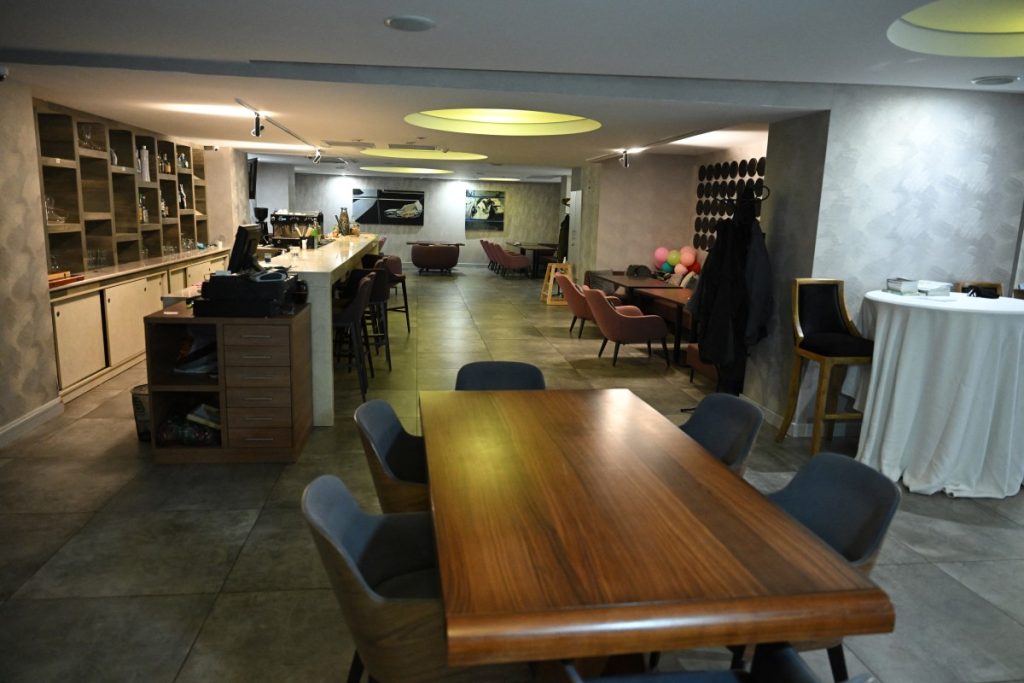Georgia’s political turmoil is impacting the economy, with businesses shuttering, investments stalling, and fears of currency devaluation mounting.
A manager of six hotels in Tbilisi, Shalva Alaverdashvili, painted a grim picture as he walked through the empty halls of the Gallery Palace. Located in the heart of the capital, just steps away from government buildings, it stands eerily quiet. Out of 70 rooms, only three are occupied. Similarly, his Citrus Hotel has just five of its 36 rooms in use, all booked by journalists covering the unrest.
Protests have gripped the nation since October’s national elections, where the ruling Georgian Dream party claimed victory. The opposition alleges electoral fraud and accuses the government of shifting Georgia’s trajectory away from its pro-European Union aspirations and toward closer ties with Russia.

Near the hotels, restaurant owner Luarsab Togonidze described his situation as dire. On a typical Monday evening, his establishment stood empty, a stark reminder of how the protests are impacting small businesses.
Hospitality Sector on the Brink
Hotels and restaurants across Tbilisi have been hit hard since the demonstrations intensified in November. The government’s decision to delay Georgia’s EU membership bid until 2028 has only fueled the unrest.
Elina Ketsbaia, who co-manages two restaurants near Freedom Square with her cousin Inga Zukhbaia, reported a dramatic 90% drop in customers. The cousins, who employ 30 people, pleaded unsuccessfully with their landlords for rent reductions. Two neighbouring restaurants have temporarily closed, and Ketsbaia is considering following suit until the turmoil subsides.
According to Alaverdashvili, who also heads an association of hotels and restaurants, the national hotel occupancy rate has plummeted to 30%, with some Tbilisi establishments seeing rates between 0% and 10%. The hospitality industry has suffered losses of roughly 3.5 million euros in cancellations over the past two weeks—a financial blow reminiscent of the COVID-19 pandemic.
Investment Freeze and Economic Risks
Tourism, which accounts for about 8% of Georgia’s GDP, is just one pillar of the economy feeling the strain. Ketevan Makharashvili, a lawyer and activist, highlighted how the crisis has put investments on hold, further unsettling Georgia’s economic outlook.
Despite forecasts of 9% economic growth for 2024 and stable debt and inflation levels, the situation is precarious. Beso Namchavadze, chief economist at Transparency International, warned of looming risks, including pressure on the foreign exchange market. With Georgia heavily reliant on imports and a banking system dominated by foreign currency deposits and loans, any economic shock could ripple through critical sectors.
Namchavadze also cautioned that Western sanctions on Georgia—such as recent travel restrictions imposed by the US and EU on officials accused of repression—could exacerbate the situation. “The economy faces a high risk of collapse, but the extent depends largely on sanctions,” he said.
As protests rage on, the streets of Tbilisi mirror the economic uncertainty gripping the nation. Businesses teeter on the edge, while hopes for stability seem increasingly fragile.


